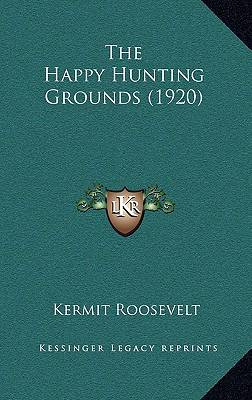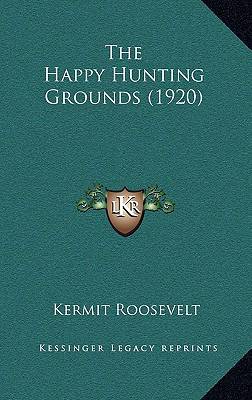
- Afhalen na 1 uur in een winkel met voorraad
- Gratis thuislevering in België vanaf € 30
- Ruim aanbod met 7 miljoen producten
- Afhalen na 1 uur in een winkel met voorraad
- Gratis thuislevering in België vanaf € 30
- Ruim aanbod met 7 miljoen producten
Zoeken
€ 58,45
+ 116 punten
Uitvoering
Omschrijving
The Happy Hunting Grounds is a memoir written by Kermit Roosevelt, the son of former US President Theodore Roosevelt. The book was first published in 1920 and chronicles Kermit's adventures and travels in Africa. The book is divided into three parts, each detailing a different expedition. The first part covers Kermit's journey to British East Africa (now Kenya) in 1913, where he and his companions hunted big game, including lions and elephants. The second part describes his expedition to the Belgian Congo (now the Democratic Republic of Congo) in 1914, where he and his team encountered dangerous wildlife and native tribes. The final part of the book recounts Kermit's travels in Brazil in 1914-1915, where he explored the Amazon rainforest and hunted jaguars.Throughout the book, Kermit provides vivid descriptions of the landscapes, wildlife, and people he encountered on his expeditions. He also reflects on the ethics of big-game hunting and the impact of colonialism on Africa and its people. Overall, The Happy Hunting Grounds offers a fascinating glimpse into the world of early 20th-century exploration and big-game hunting, as well as a nuanced perspective on the complex issues surrounding colonialism and conservation.This scarce antiquarian book is a facsimile reprint of the old original and may contain some imperfections such as library marks and notations. Because we believe this work is culturally important, we have made it available as part of our commitment for protecting, preserving, and promoting the world's literature in affordable, high quality, modern editions, that are true to their original work.
Specificaties
Betrokkenen
- Auteur(s):
- Uitgeverij:
Inhoud
- Aantal bladzijden:
- 224
- Taal:
- Engels
Eigenschappen
- Productcode (EAN):
- 9781166356996
- Verschijningsdatum:
- 10/09/2010
- Uitvoering:
- Hardcover
- Formaat:
- Genaaid
- Afmetingen:
- 152 mm x 229 mm
- Gewicht:
- 498 g

Alleen bij Standaard Boekhandel
+ 116 punten op je klantenkaart van Standaard Boekhandel
Beoordelingen
We publiceren alleen reviews die voldoen aan de voorwaarden voor reviews. Bekijk onze voorwaarden voor reviews.











